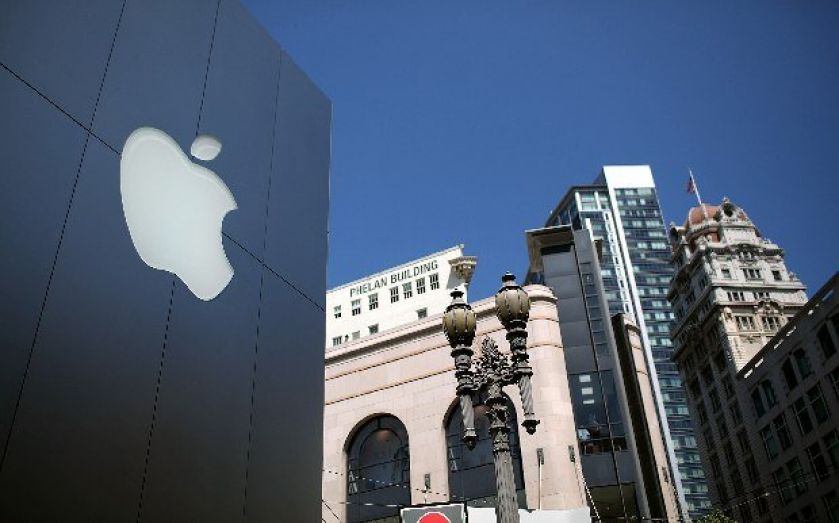Apple beats earnings expectations as investors look ahead to iPhone 6 and iWatch releases

It's what Apple does next that really matters.
The company's quarterly earnings figures saw it post a smaller than expected rise in revenue of six per cent as the tech giant continues to grow, albeit slower than anticipated, with subdued sales of iPhones and iPads in the three months to the end of June.
In its third fiscal quarter, Apple reported revenue of $37.4bn, falling short of Wall Street's expectations of $38bn.
It did beat earnings expectations though, as its profit rose to $7.7bn at $1.28 per share, comparing favourably with analyst consensus estimates of $1.23.
This represents an increase from the same quarter in 2013, during which Apple recorded revenue of $35.3bn and net profit of $6.9bn, or $1.07 per diluted share.
Analysts had been hoping for 37m iPhone sales in the quarter ended June, but figures from Apple came in below that at 35.2m. This is still 13 per cent higher on the same quarter a year ago and it is clear that high-end mobile devices are still driving the company's growth.
Apple smartphone sales typically tail off in the quarters before a new major product launch, like a new iPhone. The iPhone 6 is expected to be released sometime in the autumn.
Company chief executive Tim Cook said iPhone sales in the last quarter were helped up by demand from the BRICs: Brazil, Russia, India, and China.
"The BRIC countries were unbelievable," said Mr. Cook, noting that iPhone sales in those countries rose 55 per cent, including a 48 per cent increase in China alone.
But it will be iPad numbers that could have the Cupertino-based company worried. Sales of the company's tablet computer came in at 13.6m, below analyst expectations of around 14m and down on last year's 14.6m sales.
The drop in iPad sales has not come as a surprise though – industry data had suggested that the market for tablets may be plateauing.
But Apple is not giving up on the tablet and has high hopes that a recent partnership deal it struck with technology firm IBM to co-develop business-centric apps for iPhones and iPads, which they intend to make available later in 2014, will ensure the decline in iPad sales is just a temporary dip.
In a talk to investors following the results, Cook mentioned that the agreement with IBM will act as a future “catalyst” of iPad growth.
On the positive news front for Apple, gross margins, the percentage of total sales revenue that a company retains after incurring the direct costs associated with producing the product sold, were better than expected.
The increase to 39.4 per cent, up from 36.9 per cent in the year-ago quarter, is explained primarily due to cheaper product costs and strong Mac sales, again especially in China.
What will happen next?
Since it stopped refreshing its iPad line up in the spring, the April-to-June quarter has traditionally been the slowest period of the year for the company. But anticipation is growing over what Apple has in store for the rest of the year.
Rumours over the iPhone 6, with the new handset expected to be thinner, rounder and have a bigger screen, abound. The company's foray into the wearables sector with the much anticipated launch of a smart timepiece dubbed the iWatch, again rumoured to be coming soon, has got Apple followers excited.
Apple shares have seen some strong growth this year, rising sharply by more than 20 per cent since the previous earnings report, ahead of what Apple's iTunes chief Eddy Cue has called the "best product pipeline" in 25 years.
"We are incredibly excited about the upcoming releases of iOS 8 and OS X Yosemite, as well as other new products and services that we can't wait to introduce," said Tim Cook, whetting the appetite.
However the company's outlook for the three months to September predicted revenues of $37bn to $40bn, a little below Wall Street's forecast of $40.7bn.
Shares in Apple have dipped one per cent in after hours trading following the lower than expected guidance.
But this could potentially mean that Apple are earmarking the release of new products for the last three months of the year – or hope to surprise the market with higher than expected growth, a hallmark of Steve Job's years at the helm.
Given how little Apple will probably say between today and September, only time will tell.